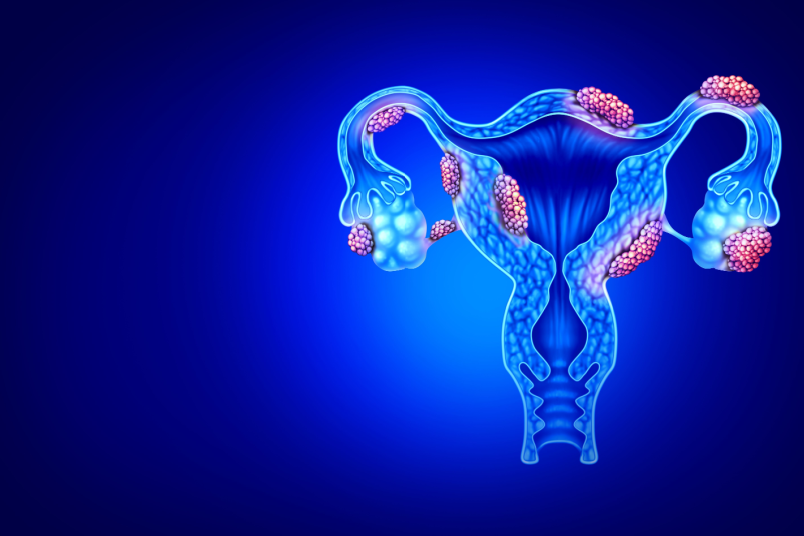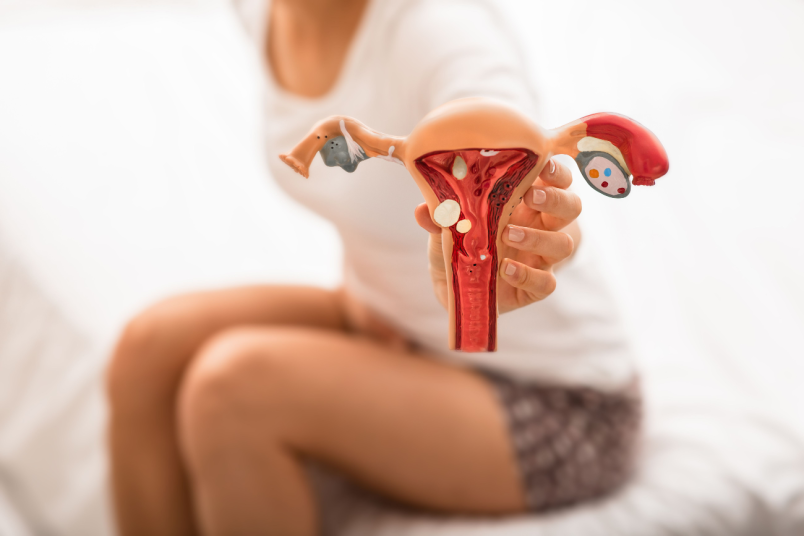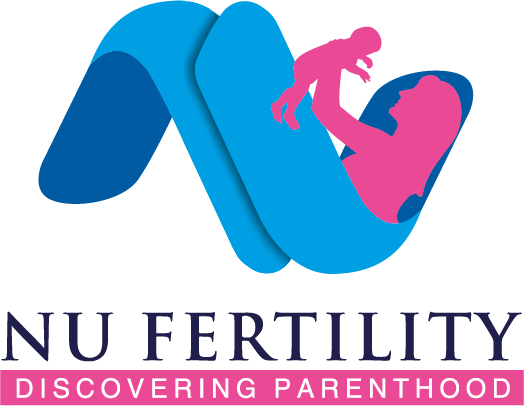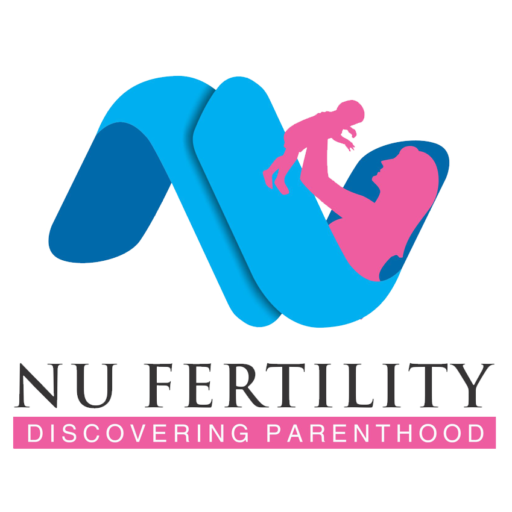
Endometriosis is derived from the word “endometrium,” which is the uterine tissue. Endometriosis is a disorder in which tissue that resembles the lining of the uterus from the inside develops on the outside. Endometriosis causes the tissue lining the inside of the uterus to thicken, break down, and bleed during each period. However, new tissue growth on the uterine wall may retain blood, resulting in painful periods and pain while having intercourse. Therefore, endometriosis makes it harder for a woman to conceive.
Signs and symptoms of endometriosis:

Endometriosis has a range of varied symptoms. These include:
● Long, heavy, and painful periods
● Difficulty conceiving a baby
● Pain during or after intercourse
● Pelvic pain
● Painful bowel movements
● Pain during urination
● Unexplained tiredness
Endometriosis and Fertility

Endometriosis is linked to infertility in women. It is evaluated through the following stages:
Stage 1:
endometriosis (minimal): There are a few tiny endometriosis implants present, but no scar tissue.
Stage 2:
endometriosis (mild): There are more endometriosis implants present, but no scar tissue.
Stage 3:
endometriosis (moderate disease): It is characterized by the presence of extensive endometriosis in the abdomen, which may be deep and cause cysts in the ovaries. Scar tissue around the tubes or the ovaries may be present.
Stage 4:
endometriosis (severe): Large endometriotic cysts in the ovaries are observed, as well as probable scar tissue between the uterus and the rectum, around the ovaries or the fallopian tube.
Here are 5 things you should know about endometriosis

1. Endometriosis is not similar to infertility
Endometriosis may increase the risk of infertility due to several reasons. But, it is not in itself similar to infertility. Most of the time, AMH (anti-Müllerian hormone) levels due to endometriosis are linked with infertility. However, AMH is more of a marker of egg quantity rather than egg quality. For infertility, in addition to AMH levels, it is required to consider other hormone levels, regularity of periods, and age.
2. Women in their 30’s and 40’s are most likely to have it
Endometriosis can manifest itself as early as a girl’s first menstrual cycle, but it is most frequently seen between the ages of 30 and 40. Although the exact cause is unknown, the most likely variables are late pregnancies, menstrual periods lasting more than 7 days, or menstrual cycles shorter than 27 days. There could also be a family link through moms, sisters, or even aunts.
3. Egg freezing might be a good idea
Women who are not ready to have a baby in their early reproductive years can choose to freeze their eggs for future use. It is ideal to freeze your eggs in your 20s or before the age of 35. Freezing eggs at this age may provide the best quality of eggs. Having healthy eggs in a bank can increase your chances of conceiving through in vitro fertilization (IVF) if you ever need a baby.
4. Getting pregnant will not cure endometriosis
It is a common misconception that childbearing will treat endometriosis. Endometriosis is an oestrogen-dependent disorder. Progesterone levels rise during pregnancy, which helps improve endometriosis symptoms. Though the symptoms of endometriosis improve with this, it may not cure the disease. Exclusive breastfeeding may also relieve symptoms because it lowers oestrogen and progesterone levels in the body. The symptoms may reappear once the pregnancy or the breastfeeding is over if endometriosis is left undiagnosed and untreated.
5. Right treatment could preserve or even restore fertility
Endometriosis affects no two women in the same way. As a result, while recommending fertility treatment, it is critical to individualize the treatment method. Before beginning any treatment, a full fertility assessment is performed to obtain the
majority of the data and a clear image of how endometriosis is interfering with the woman’s ability to conceive. Intrauterine insemination (IU) may be an option if the disease is mild. However, in some instances, women may be recommended to try IVF (in-vitro fertilization). If the endometriosis is severe and has adversely destroyed the ovaries due to presence of ovarian cysts or surgery for treating ovarian cysts , impacting ovarian reserve and egg quality, donor eggs may provide you with the best chance of conceiving a child.
If you are diagnosed with endometriosis or experiencing symptoms of endometriosis, and finding it difficult to conceive a child, it is better to know the options available that could help you overcome the condition.
NU Hospitals, based in Bangalore, offers modern treatment options to women suffering from endometriosis and infertility. The doctors at NU Hospitals have years of experience treating women’s reproductive health issues and are well-trained to manage even the most delicate cases with expertise. If you are suffering from endometriosis or have any queries related to women’s reproductive health, consult the specialists at NU hospitals today!
References:
1. 5 Things You Need to Know About Endometriosis. McLeod Health.
. Accessed on 29 September 2023.
2. Endometriosis and Infertility. Brigham and Women’s Health.
https://www.brighamandwomens.org/obgyn/infertility-reproductive-surgery/endom etriosis/endometriosis-and-fertility
. Accessed on 29 September 2023.
3. 5 Things You Need to Know About Endometriosis. Mather Hospital Northwell Health.
. Accessed on 29 September 2023.
4. Endometriosis. Johns Hopkins Medicine.
https://www.hopkinsmedicine.org/health/conditions-and-diseases/endometriosis
. Accessed on 29 September 2023.
Author : Dr. Sneha J


